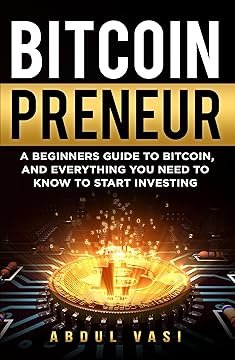Advertisement:
With over 25 years of experience as a business consultant, Abdul Vasi has helped countless brands grow and thrive. As a successful entrepreneur, tech expert, and published author, Abdul knows what it takes to succeed in today’s competitive market.
Whether you’re looking to refine your strategy, boost your brand, or drive real growth, Abdul provides tailored solutions to meet your unique needs.
Get started today and enjoy a 20% discount on your first package! Let’s work together to take your business to the next level!
The Necessity of Saving in 2025
It was a rainy morning in the bustling streets of Delhi, where Ramesh, a 35-year-old middle-class professional, sat on his balcony sipping chai. As he glanced at the paper, his eyes were drawn to an article about the rising cost of living, which had already begun to pinch his wallet. Inflation had risen sharply, and Ramesh realized something crucial: he needed to rethink his approach to managing money. The pandemic had already forced him to dip into his savings, and now, with the future uncertain, Ramesh knew that the old ways of managing finances no longer served him. He had to cut expenses and build a robust emergency fund for the future.
This thought didn’t just belong to Ramesh. In fact, it was something many Indians were grappling with in 2025. Whether you are a young professional in Mumbai, a small business owner in Kolkata, or a retiree in Chennai, the reality is the same—saving money has become more challenging than ever.
As we step into 2025, inflation, rising housing costs, and unpredictable economic factors are forcing individuals to look for smarter ways to save. While the idea of “saving for a rainy day” isn’t new, the methods we use today are far more strategic than ever before. Let’s take a deeper dive into smart saving strategies that not only help cut expenses but also ensure that you’re building a solid emergency fund for the uncertainties that lie ahead.
Chapter 1: The Evolution of Saving—Why Traditional Methods No Longer Work
Saving has been a long-standing tradition in India. From our grandparents who stored money in old tin boxes under their beds to our parents investing in fixed deposits, the methods have varied, but the idea has always been the same—save for the future.
But as we approach 2025, saving money isn’t as simple as putting some cash in a jar anymore. The times have changed, and so have the challenges. According to the Indian Ministry of Statistics, inflation in India in 2024 was at 7.5%, significantly higher than previous years, pushing up the prices of essentials like food, fuel, and housing. This has led to a squeeze on disposable incomes, especially among the working class.
A good example is Neha, a teacher in Pune. Neha had always been good with her money, but in recent years, the rising cost of groceries and utilities had eaten into her savings. “I used to save almost 20% of my salary each month,” she said. “But now, it feels like I’m just getting by.” Neha’s story is echoed by millions of middle-class Indians who are struggling to maintain the same saving habits in the face of inflation.
This is why the need for smart saving strategies has become more critical than ever. The old-fashioned ways of saving in a savings account or fixed deposit are no longer enough. The strategies for 2025 need to be dynamic, flexible, and tech-savvy to help people save in a world where costs are always on the rise.
Chapter 2: Cutting Expenses—The First Step Toward Smart Saving
1. Tracking Expenses with Budgeting Apps
The first step to saving smarter is identifying where your money is going. With the help of budgeting apps, it’s now easier than ever to track your income and expenses. In India, apps like Walnut, MoneyView, and YNAB (You Need A Budget) are gaining popularity. These apps not only help you monitor your daily spending habits but also allow you to set financial goals and categorize expenses.
Take the case of Arvind, a software engineer from Bengaluru, who started using a budgeting app after a friend recommended it. “I never knew how much I was spending on eating out and entertainment,” Arvind said. “Once I started tracking my expenses, I realized that I could cut down on these areas without feeling deprived.” Within six months, Arvind had reduced his discretionary spending by 30%—a significant sum that he diverted towards savings and investments.
2. Eliminating Unnecessary Subscriptions and Automating Bills
In today’s digital world, many people fall into the trap of paying for services they rarely use. For instance, you might subscribe to multiple streaming platforms or premium versions of apps you don’t actually use. Arti, a 40-year-old marketing manager in Noida, found that her monthly subscriptions to various streaming platforms added up to over ₹2,000 a month. By cutting down to just one service, she saved nearly ₹1,500 each month. “It didn’t feel like a sacrifice because I was already paying for services I wasn’t using,” Arti said.
This is where tools like Truebill (now Rocket Money) come in. While these apps are mostly popular in the West, they have inspired similar tools in India that can help track and eliminate unnecessary subscriptions. Additionally, automating regular bills like electricity, phone plans, and insurance premiums ensures that you never miss a payment, which helps avoid late fees and penalties.
3. Adopting the 50/30/20 Rule
A simple but effective rule for budgeting is the 50/30/20 rule. This rule divides your income into three categories:
- 50% for needs: This includes rent, groceries, utilities, and other essentials.
- 30% for wants: Dining out, shopping, entertainment, and other discretionary spending.
- 20% for savings and debt repayment: This is crucial for building your emergency fund and investing for the future.
Rajeev, an entrepreneur from Jaipur, adopted this rule a year ago, and it revolutionized the way he managed his finances. “Initially, I thought the 50/30/20 rule was restrictive, but soon I saw how much I was wasting on things I didn’t need. My savings grew by 25% in just six months!” Rajeev’s success story is an example of how small changes in spending habits can lead to significant savings.
Chapter 3: Boosting Your Emergency Fund—The Key to Financial Security
Building an emergency fund is perhaps the most important financial goal for 2025. Experts recommend having at least three to six months of living expenses saved in case of unexpected events like job loss, medical emergencies, or natural disasters.
In India, however, the majority of the population lacks an emergency fund. According to a 2024 report by the National Bank for Agriculture and Rural Development (NABARD), over 60% of urban households do not have enough savings to cover even a month’s worth of expenses in case of emergencies.
Building an emergency fund is a matter of discipline, and it requires smart strategies to ensure that your savings are protected from unforeseen circumstances. Here’s how you can work towards boosting your emergency fund:
1. Set Clear Savings Goals
Like anything else in life, saving for an emergency fund requires a clear goal. Priya, a 28-year-old finance professional from Hyderabad, had always been cautious with her money but didn’t have a dedicated emergency fund. She started by setting a target: to save ₹1 lakh in 12 months. She split this target into manageable monthly goals and prioritized saving over discretionary spending. “Once I set a target, it became easier to keep track and remain motivated,” Priya said.
2. High-Interest Savings Accounts and Liquid Funds
While saving money in a basic savings account is better than nothing, it’s not the best way to grow your emergency fund. High-interest savings accounts and liquid funds are excellent alternatives in 2025, offering better returns without the risk of investing in stocks or mutual funds.
Liquid funds, which are short-term mutual funds, offer higher returns than a savings account and can be redeemed easily in case of an emergency. Many Indian banks and financial institutions now offer zero-fee liquid funds, which can act as a great tool for building an emergency fund.
Chapter 4: The Power of Financial Planning—Building Wealth and Security
Saving money is important, but smart financial planning is what sets successful savers apart from others. Anil, a 45-year-old businessman from Pune, realized that while he was good at saving, he wasn’t investing enough. He began working with a financial advisor in 2024 to plan his investments, including SIP (Systematic Investment Plans) in mutual funds and gold ETFs. Anil’s new strategy didn’t just build his emergency fund; it also helped him accumulate wealth.
1. Start Early with SIPs and Mutual Funds
SIPs are a great way for anyone to start investing, no matter how small their budget is. By investing small amounts regularly, you can build wealth over time, even in volatile markets. Neelam, a teacher from Lucknow, started investing ₹5,000 per month through SIPs, even though her salary wasn’t high. Over time, her investments grew, and she now sees them as a part of her long-term financial plan.
2. Take Advantage of Tax-Saving Instruments
In 2025, with the introduction of several tax-saving schemes like PPF (Public Provident Fund), ELSS (Equity-Linked Saving Scheme), and NPS (National Pension System), you can save on taxes while also building wealth. These schemes not only help you save but also provide good returns over time.
Conclusion: Your Path to Financial Independence
The path to building smart saving strategies is not a sprint; it’s a marathon. But as we’ve seen in the stories of Ramesh, Arvind, Priya, and others, adopting the right strategies can make a world of difference. By tracking your expenses, eliminating unnecessary costs, and building an emergency fund, you can secure your financial future and weather any storm that comes your way.
The road to financial freedom begins with small steps, and in 2025, the tools available to us—be it budgeting apps, liquid funds, or SIPs—make it easier than ever. The key is consistency. As the famous Indian quote by Chanakya says, “The world’s biggest power is the youth and the beauty of a woman.” But, add to this, the world’s biggest power is also the ability to plan, save, and grow wealth for a secure future.
So, how will you begin your journey toward saving smarter and securing your future? The choice is in your hands.
Final Thoughts
2025 is the year for change. With the right strategies, tools, and mindset, you can take control of your finances, cut unnecessary expenses, and build the emergency fund that will protect you through life’s ups and downs. It’s time to take charge of your financial destiny.




